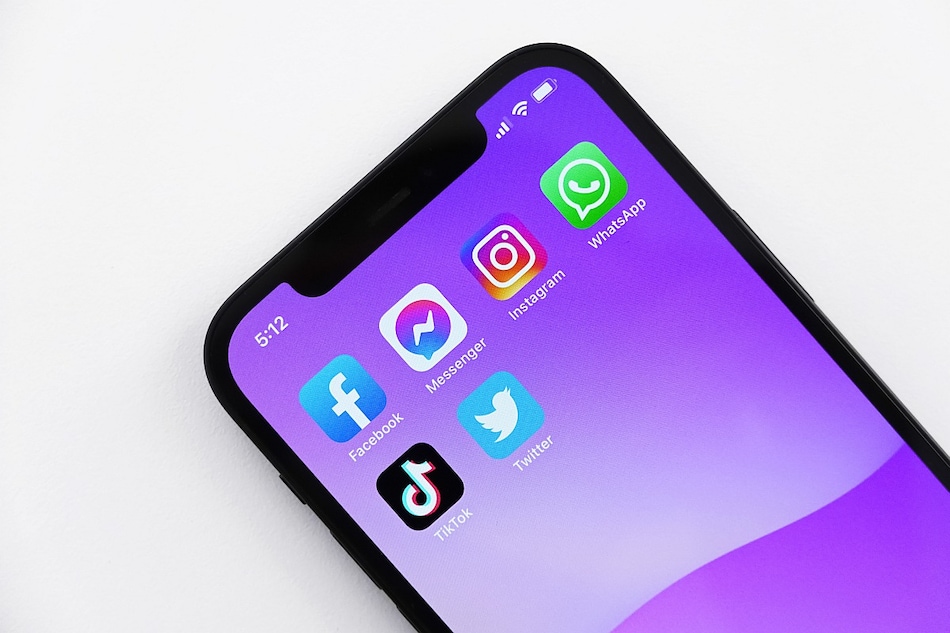- Home
- Social networking
- Social networking News
- Biden Administration Tells US Supreme Court Section 230 of Communications Decency Act Has Limits
Biden Administration Tells US Supreme Court Section 230 of Communications Decency Act Has Limits
Section 230 of the US Communications Decency Act holds that social media firms can't be treated as the publisher of information posted by users.

Photo Credit: Unsplash/ Jeremy Bezanger
YouTube accused of recommending videos by Islamic State through its algorithms
The Biden administration argued to the US Supreme Court on Wednesday that social media giants like Google could in some instances have responsibility for user content, adopting a stance that could potentially undermine a federal law shielding companies from liability.
Lawyers for the US Department of Justice made their argument in the high-profile lawsuit filed by the family of Nohemi Gonzalez, a 23-year-old American citizen killed in 2015 when Islamist militants opened fire on the Paris bistro where she was eating.
The family argued that Google was in part liable for Gonzalez' death because YouTube, which is owned by the tech giant, essentially recommended videos by the Islamic State group to some users through its algorithms. Google and YouTube are part of Alphabet (GOOGL.O).
The case reached the Supreme Court after the San Francisco-based 9th US Circuit Court of Appeals sided with Google, saying they were protected from such claims because of Section 230 of the Communications Decency Act of 1996.
Section 230 holds that social media companies cannot be treated as the publisher or speaker of any information provided by other users.
The law has been sharply criticised across the political spectrum. Democrats claim it gives social media companies a pass for spreading hate speech and misinformation.
Republicans say it allows censorship of voices on the right and other politically unpopular opinions, pointing to decisions by Facebook and Twitter to ban dissemination of a New York Post article about the son of then-Democratic candidate Joe Biden's adult son, Hunter, in October 2020.
The Biden administration, in its filing to the Supreme Court, did not argue that Google should be held liable in the Gonzalez case and voiced strong support for most of Section 230's protections of social media companies.
But the DOJ lawyers said that algorithms used by YouTube and other providers should be subject to a different kind of scrutiny. They called for the Supreme Court to return the case to the 9th Circuit for further review.
Attorneys for Google could not be reached for comment on Wednesday night.
© Thomson Reuters 2022
For details of the latest launches and news from Samsung, Xiaomi, Realme, OnePlus, Oppo and other companies at the Mobile World Congress in Barcelona, visit our MWC 2026 hub.
Related Stories
- Samsung Galaxy Unpacked 2026
- iPhone 17 Pro Max
- ChatGPT
- iOS 26
- Laptop Under 50000
- Smartwatch Under 10000
- Apple Vision Pro
- Oneplus 12
- OnePlus Nord CE 3 Lite 5G
- iPhone 13
- Xiaomi 14 Pro
- Oppo Find N3
- Tecno Spark Go (2023)
- Realme V30
- Best Phones Under 25000
- Samsung Galaxy S24 Series
- Cryptocurrency
- iQoo 12
- Samsung Galaxy S24 Ultra
- Giottus
- Samsung Galaxy Z Flip 5
- Apple 'Scary Fast'
- Housefull 5
- GoPro Hero 12 Black Review
- Invincible Season 2
- JioGlass
- HD Ready TV
- Latest Mobile Phones
- Compare Phones
- Nothing Phone 4a Pro
- Infinix Note 60 Ultra
- Nothing Phone 4a
- Honor 600 Lite
- Nubia Neo 5 GT
- Realme Narzo Power 5G
- Vivo X300 FE
- Tecno Pop X
- MacBook Neo
- MacBook Pro 16-Inch (M5 Max, 2026)
- Tecno Megapad 2
- Apple iPad Air 13-Inch (2026) Wi-Fi + Cellular
- Tecno Watch GT 1S
- Huawei Watch GT Runner 2
- Xiaomi QLED TV X Pro 75
- Haier H5E Series
- Asus ROG Ally
- Nintendo Switch Lite
- Haier 1.6 Ton 5 Star Inverter Split AC (HSU19G-MZAID5BN-INV)
- Haier 1.6 Ton 5 Star Inverter Split AC (HSU19G-MZAIM5BN-INV)

















